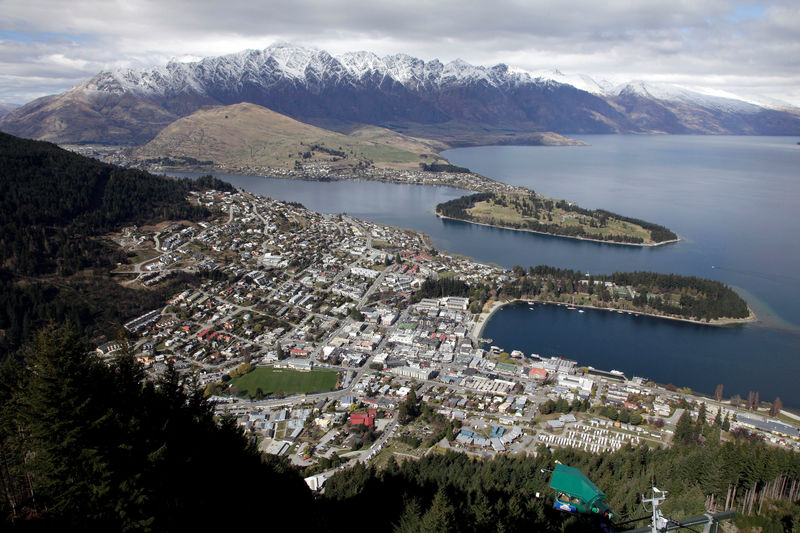* NZ GDP up 0.6 pct q/q in Q4 vs 0.3 pct in Q3
* Annual growth slowed to 2.3 pct vs 2.6 pct in Q3
* GDP deflator negative in Q4 despite solid consumption growth
* RBNZ likely to stick with neutral stance next week (Adds market reaction, economist comment, bullet points)
By Swati Pandey
SYDNEY, March 21 (Reuters) - New Zealand's economy rebounded last quarter as households splurged on everything from eating out to vacations, but there were few signs of inflation, suggesting policy will remain accommodative for some while yet.
Statistics New Zealand said on Thursday that New Zealand's gross domestic product expanded 0.6 percent quarter-on-quarter in the three months to December, as analysts had expected, and double the 0.3 percent pace of the third quarter.
The strong bounce back sent the kiwi dollar NZD=D3 rallying to a near seven-week high of $0.6923. The kiwi was last up 0.4 percent at $0.6914.
Households contributed a solid 0.8 percent to fourth-quarter growth, while inventories were the biggest drag. The figure, however, was below the 0.7 percent growth forecast by the Reserve Bank of New Zealand (RBNZ).
The year-on-year data was a disappointment, showing economic growth slowed to 2.3 percent, when analysts were looking for a 2.5 percent increase. That is also weaker than a tepid 2.6 percent clocked in the third quarter.
"We think that today's data foreshadow weaker growth throughout 2019," said Ben Udy, Singapore-based economist at Capital Economics.
"We expect annual growth to slow...as net migration eases and the renewed declines in business confidence weigh on investment."
A gauge of business sentiment in New Zealand worsened in February as respondents expected the economy to deteriorate this year. out last month showed the country's unemployment rate increased by more than expected in the fourth quarter to 4.3 percent in a warning sign for the RBNZ which has left interest rates at record lows since late 2016. worryingly for the central bank, Thursday's data showed the GDP deflator was negative in the quarter, implying inflation was negligible despite solid consumption growth.
New Zealand's NZ$293 billion ($202.49 billion) economy is generally expected to expand around 2.5 to 3 percent this year, but there are now increasing questions whether such a pace can lift consumer prices and push the unemployment rate lower.
The RBNZ holds its policy meeting next week at which it is widely expected to keep rates at a record low 1.75 percent given risks to growth have increased recently.
"What they'll do is maintain their neutral guidance but talk about the downside risks," said Sydney-based JPMorgan (NYSE:JPM) economist Ben Jarman.
"The problem is the global economy has weakened, New Zealand's top trading partner Australia has weakened. So we expect the RBNZ to provide some colour on the downside risks without changing their language."
The U.S. Federal Reserve on Wednesday flagged a slowdown in the world's biggest economy while abandoning plans for further rate hikes this year in a major shift in its perspective. = 1.4470 New Zealand dollars)
